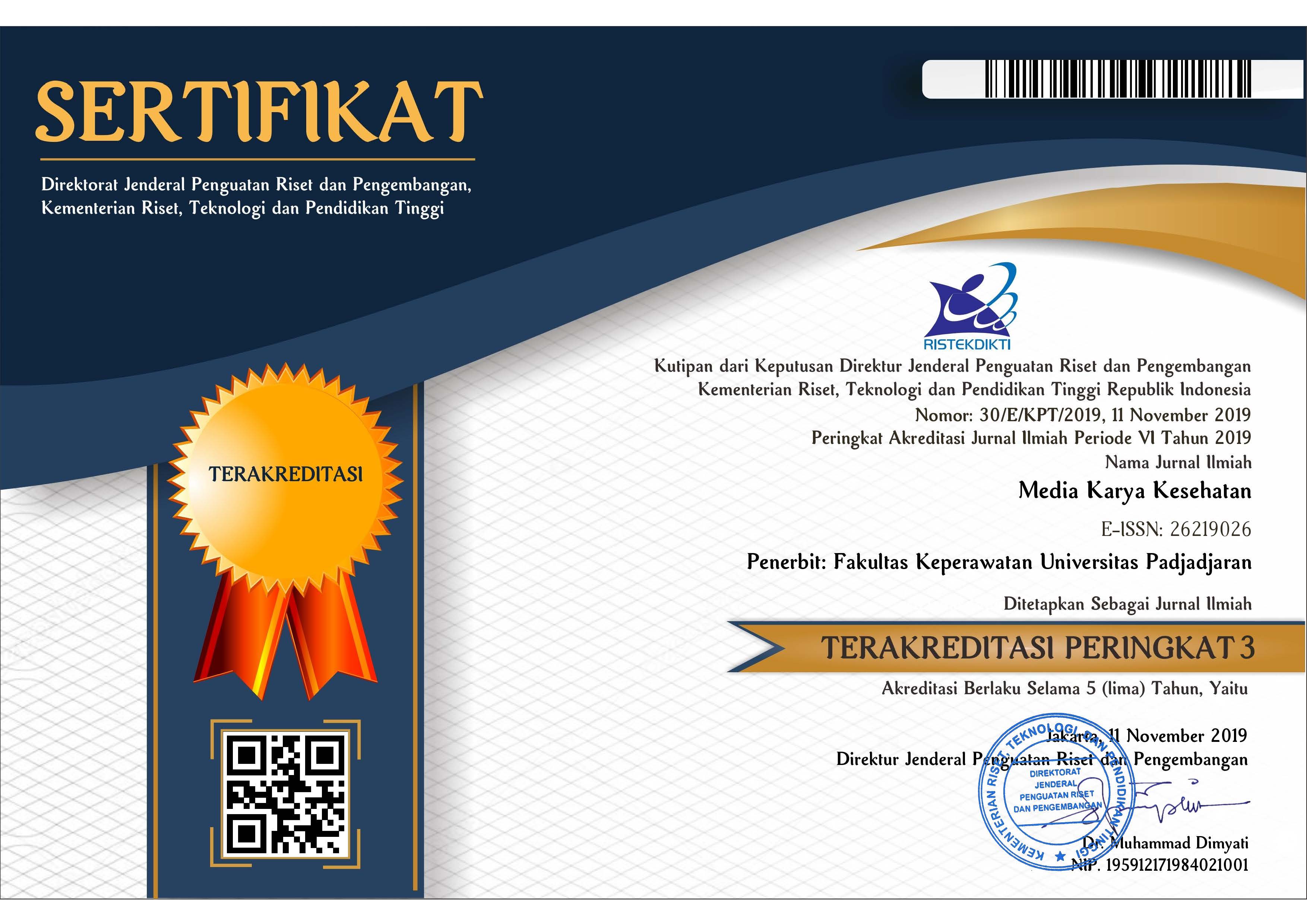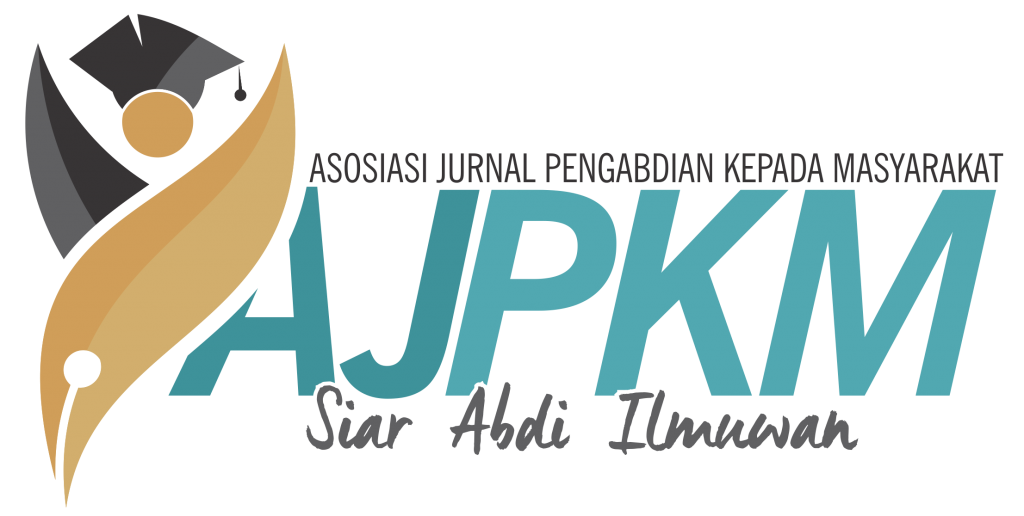Increasing Self-Medication Knowledge of Administrators in the Child Social Welfare Institution
Abstract
Child Welfare Institution (CWI) managers often provide self-treatment or self-medication when foster children experience mild symptoms of illness. In its implementation, self-medication often results in inaccuracies. For this reason, it is necessary to increase the self-medication knowledge capacity of CWI managers in Bengkulu City. The aim of this activity is to increase knowledge about self-medication by CWI managers. This activity provides knowledge about how to manage medicines properly and correctly. The training was given using the Active Human Learning Method which was attended by 30 people. Based on the pretest results, the average score was 5.73, while the posttest results showed an increase in the average score to 7.27 and was tested by an independent t-test (p=0.000). Increasing this knowledge is important in supporting rational drug use programs.
Keywords: Child Welfare Institutions, knowledge, self-medication.
Full Text:
PDF (Bahasa Indonesia)References
Albarrán, K. F., & Zapata, L. V. (2008). Analysis and quantification of self-medication patterns of customers in community pharmacies in southern Chile. Pharmacy World & Science, 30(6), 863–868.
Aljinović-Vučić, V., Trkulja, V., & Lacković, Z. (2005). Content of home pharmacies and self-medication practices in households of pharmacy and medical students in Zagreb, Croatia: findings in 2001 with a reference to 1977. Croatian Medical Journal, 46(1).
Almasdy, D., & Sharrif, A. (2011). Self-Medication Practice with Nonprescription Medication among University Students: a review of the literature Citation: Dedy Almasdy & Azmi Sherrif .Self-Medication Practice with Nonprescription Medication among University Students: a review of the liter. 2(3), 95–100.
Badan Penelitian dan Pengembangan Kesehatan Kemenkes RI. (2013). Riset Kesehatan Dasar.
Hughes, C. M., McElnay, J. C., & Fleming, G. F. (2001). Benefits and risks of self medication. Drug Safety, 24(14), 1027–1037.
Peraturan Menteri Sosial Republik Indonesia Nomor : 30 / HUK / 2011 Tentang Standar Nasional Pengasuhan Anak Untuk Lembaga Kesejahteraan Sosial Anak, (2011).
Lathifah, M. A., Susanti, S., Ilham, M., & Wibowo, A. (2015). Perbandingan Metode CBIA dan FGD dalam Peningkatan Pengetahuan dan Ketepatan Caregiver dalam Upaya Swamedikasi Demam pada Anak. Pharmaceutical Sciences and Research, 2(2), 89–100. https://doi.org/10.7454/psr.v2i2.3336
Musdalipah, M. (2018). Pemberdayaan Masyarakat Tentang Swamedikasi Melalui Edukasi Gema Cermat Dengan Metode Cbia. Dinamisia : Jurnal Pengabdian Kepada Masyarakat, 2(1), 106–112. https://doi.org/10.31849/dinamisia.v2i1.1085
Paula Martins, A., da Costa Miranda, A., Mendes, Z., Soares, M. A., Ferreira, P., & Nogueira, A. (2002). Self‐medication in a Portuguese urban population: a prevalence study. Pharmacoepidemiology and Drug Safety, 11(5), 409–414.
Pereira, F. S. V. T., Bucaretchi, F., Stephan, C., & Cordeiro, R. (2007). Automedicação em crianças e adolescentes. Jornal de Pediatria, 83(5), 453–458. https://doi.org/10.2223/JPED.1703
DOI: https://doi.org/10.24198/mkk.v6i2.44731
Refbacks
JURNAL INI TERINDEKS DI:









Penerbit :
Fakultas Keperawatan, Universitas Padjadjaran
Jalan Raya Bandung-Sumedang Km. 21 Jatinangor, Sumedang, Indonesia 45363
WA: 085317736810
Tlp. 022-7795596
Email: info.mkk.keperawatan@unpad.ac.id
Email: novita.trivita@gmail.com

This work is licensed under a Creative Commons Attribution-NonCommercial 4.0 International License



